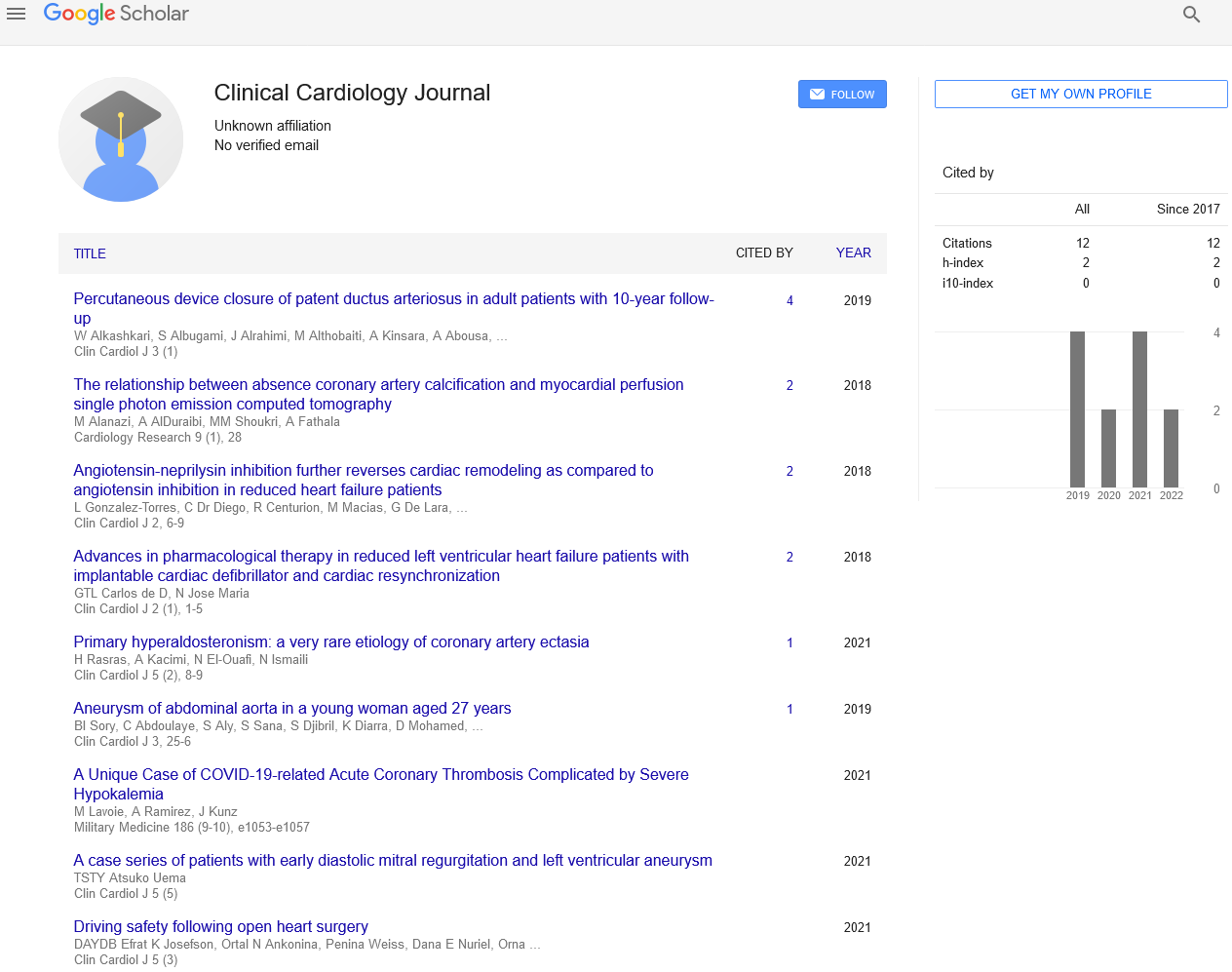Gender-related differences in outcomes of transcatheter aortic valve replacement in nonagenarians
Received: 30-Jan-2019 Accepted Date: Feb 15, 2019; Published: 22-Feb-2019
Citation: Tsang DC, Nores M, Rothenberg M, et al. Gender-related differences in outcomes of transcatheter aortic valve replacement in non-agenarians. Clin Cardiol J 2019;3(1):4-8
This open-access article is distributed under the terms of the Creative Commons Attribution Non-Commercial License (CC BY-NC) (http://creativecommons.org/licenses/by-nc/4.0/), which permits reuse, distribution and reproduction of the article, provided that the original work is properly cited and the reuse is restricted to noncommercial purposes. For commercial reuse, contact reprints@pulsus.com
Abstract
Background: Multiple studies suggest women have lower intermediate-term mortality risk than men following transcatheter aortic valve replacement, yet no published investigations have evaluated this trend in nonagenarians.
Objective: We compare early clinical outcomes and actuarial survival of nonagenarians who underwent transcatheter aortic valve replacement, by gender.
Methods: A concurrent cohort study of 148 consecutive nonagenarians undergoing transcatheter aortic valve replacement from April 2012 to July 2017 was conducted at a tertiary referral center. Relevant baseline demographics between men and women were compared. Major morbidity, operative mortality, and 5-year actuarial survival were compared between groups. Independent predictors of operative and late mortality were examined.
Results: Compared with men, women presented with higher STS risk scores (women: 7.2% [5.9-8.8%] vs. men: 5.8 [3.8-7.5%]; p=0.002). Women experienced more postoperative atrial fibrillation compared with men (women: 20% vs. men: 9%; p=0.049). Overall operative mortality was similar between groups (women: 4% vs. men: 10%; p=0.181). Actuarial survival at 3 and 5-years was lower in women than men, but this difference did not reach statistical significance (69% and 56% for women, and 58% and 40% for men, respectively; p=0.071). Urgent status was associated with increased risk of operative mortality. Predictors of late mortality included urgent status, coronary artery disease, history of atrial fibrillation, and postoperative prolonged ventilatory support, stroke, cardiac arrest, and pacemaker implantation.
Conclusion: Significant gender-related differences exist in nonagenarians presenting for transcatheter aortic valve replacement. While women had lower operative and late mortality, actuarial survival did not achieve statistical significance at 3 and 5-years.





